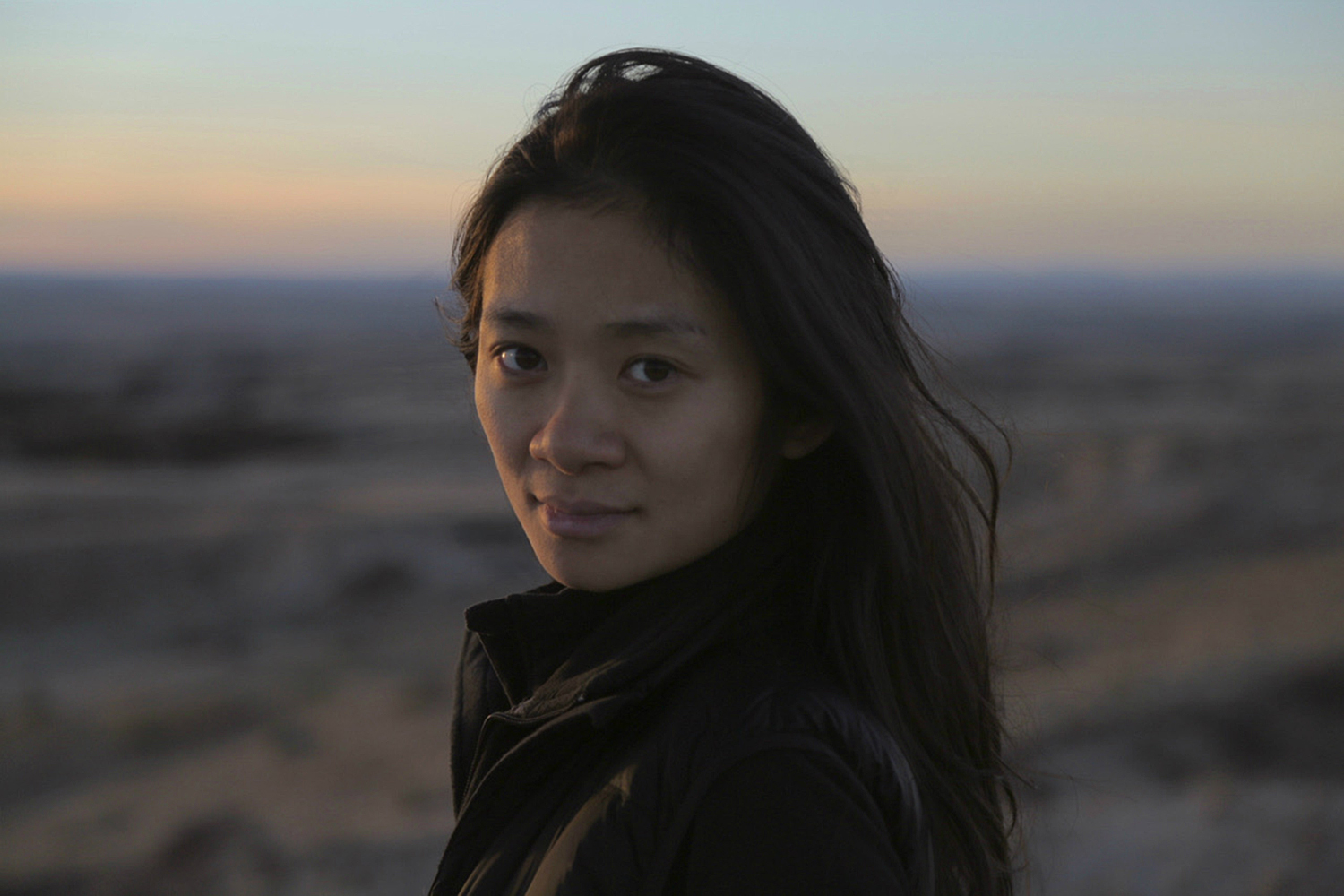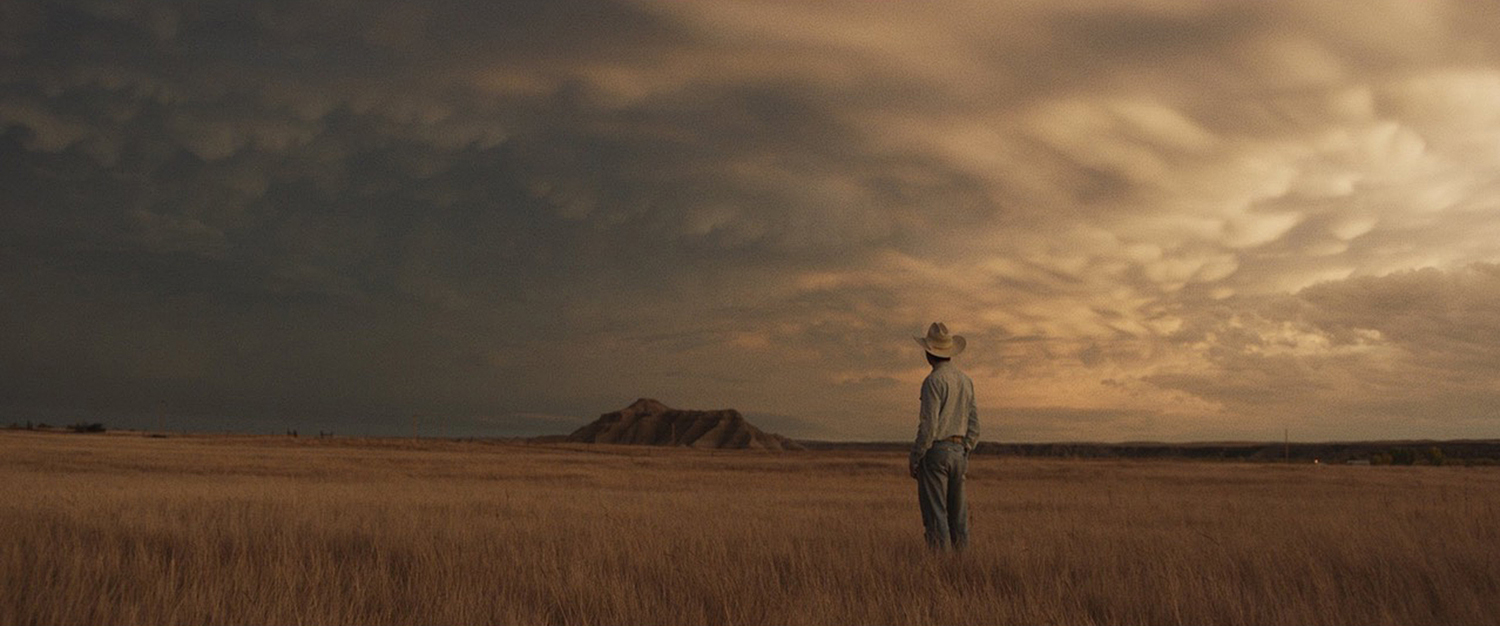
- Industry
Chloé Zhao: A Woman Telling a Cowboys’ Tale
The opening of The Rider – winner, with A Ciambra, of the Directors Fortnight– focuses on a horse’s mane, spreading and floating in slow motion as the animal bucks and whinnies. It’s an indication that this cowboy story is going to be told differently and hints at the visuals to come that capture the vast open spaces and rugged isolation of South Dakota. The establishing shots are like art on the big screen, and come courtesy of Chloé Zhao. Wait. A female director making uniquely male stories?

“I would like to portray men differently than how they are often portrayed in a male dominated industry” says the director and writer of The Rider. “That’s equally important for feminism. Not only to make our girls more confident and stronger, but also to make our boys in touch with their feminine side. This allows them to be vulnerable.”
Born in Beijing, sent to a boarding school in London, and completing her education in America – first to LA before attending a woman’s college in Massachusetts and finally completing her studies in New York – Zhao refers to a “liquid sense of identity” multiple times in our interview on the Mediterranean at Cannes’ 70th Film Festival. “Yes I am not only a woman, I’m from China and a woman of color. I have a lot of strikes against me, but it works for me because I do not feel at home anywhere. That is a blessing and curse. I have always felt like an outsider, like a chameleon, adapting and adopting a new identity wherever I go, just so I can fit in – to create a sense of home.”
This outsider understanding serves her well in telling the tale of Brady Blackburn (Brady Jandreau), a twenty-year-old Lakota cowboy making his life taming horses and riding the bucking animals in competition at rodeos. The latter leaves him with a brutal brain injury that puts a plate in his head. Brady emerges from a three-day coma, told never to ride again. The movie chronicles his adaption as he is forced to give up his dreams. A wide shot captures the desperation and freedom of a bareback ride he takes, ignoring his doctor’s advice, the dust kicking up as the horse gallops, the man at one with the animal in the vastness – coming from nowhere, going nowhere. Chloé uses the location as a character – escape and oppression in the huge expanse. The stark territory blaring, his lack of choices coming to terms with reality. He can’t do what he used to, and his rodeo contemporaries don’t understand. A night with friends, like coyotes, racing the rock face beneath a dominant full moon, being urged to “Just do it, eat the pain,’ and his simple reply, “A brain injury is not the same as broken ribs.” His right hand randomly useless, when he needs both in breaking wild horses. The film more poignant when you realize these are real people playing versions of their own lives.
I wondered if she got any pushback from these men of the earth which she was co-opting as actors, in an area of America where woman have to fight for their place at the table. She laughs, “You mean with the wild cowboys?” Her eyes dance but turn serious as she scans the ceaseless surrender of waves on the beach where the interview takes place. “That was probably one of the hardest things I’ve ever had to do. The older cowboys are like real old school who have never listened to a word any one says. The boys are on the road with their dad learning how to herd cows, or working on the ranch. They have very little female voice in their head.” She gives a laugh that you imagine doesn’t cover it all. “I told them what to do for five weeks.” Suffice it to say it takes great skill to get a cowboy to comply with a diminutive Asian woman, and the performances she elicited from people who had never acted before, speaks volumes about her skill. Brady Jandreau, in particular, shows a native talent, and beauty, like a young Josh Hartnett. So how did she do it?
“In life most often I get no. I will be honest with you. I go home and cry and then I wake up the next morning and I say let’s try again.It’s also about knocking on the right door. Sometimes you can break your head banging in the street filled with men. You have to make some changes but the foundation is not going to move until that generation dies off. For me it’s about, can I build an extension? Can I build something from the start? So I am also the producer on both of my films. I make deals about where the film is going to go and how to raise money and maintain final cut. I think it’s really important. When you start small you may have to give up a lot of these things to be part of the industry, especially if you want to make the bigger films. These are skills you will need as a woman and an artist once you are part of the industry – that male world.”
It’s clear though that Zhao, does not focus on the differences, but highlights the sameness in divergence. She’s also grateful to the Cannes Film Festival for giving her a platform to showcase her work. “It is such an opportunity and amazing. My first film, Songs My Brothers Taught Me, like The Rider, was selected in the Director’s Fortnight.” It was also nominated for three Independent Spirit Awards in 2016 – and through it she first discovered Brady.
Despite her success, she reluctantly admits, “Of course I’ve seen so many of my lovely male filmmakers who maybe have not had the same success that I had on my first film, but who have been ushered in, had things much easier and suddenly given offers and all of this money. For me it’s it is ‘no’ 95% of the time. It angers me but I try to stay unclouded. I don’t want anger and resentment to contaminate the kind of stories I tell. The moment I get into that or I try to catch up with them, I’ll be retelling the story they just redo. So I have to accept that that is my just advantage right now and just wait it out, build a community around me that continues to sustain myself. Because I do believe the audience are hungered for something different.”
As our time runs out I wonder if she feels an obligation to tell women’s stories? You can see the boxing and bias that a woman director is expected to tell women’s tales, rather than just tell a story, places on her. “I do feel the pressure but I never listen. It is important to reshape how men are portrayed; that way we can balance things out. It’s the only way to bring men and women together rather than constantly saying they are enemies.”
**The Rider is a recipient of the Tribeca Film Institute’s IWC Filmmaker Award, produced through Caviar: Highway Films and is represented by Protagonist Pictures.

